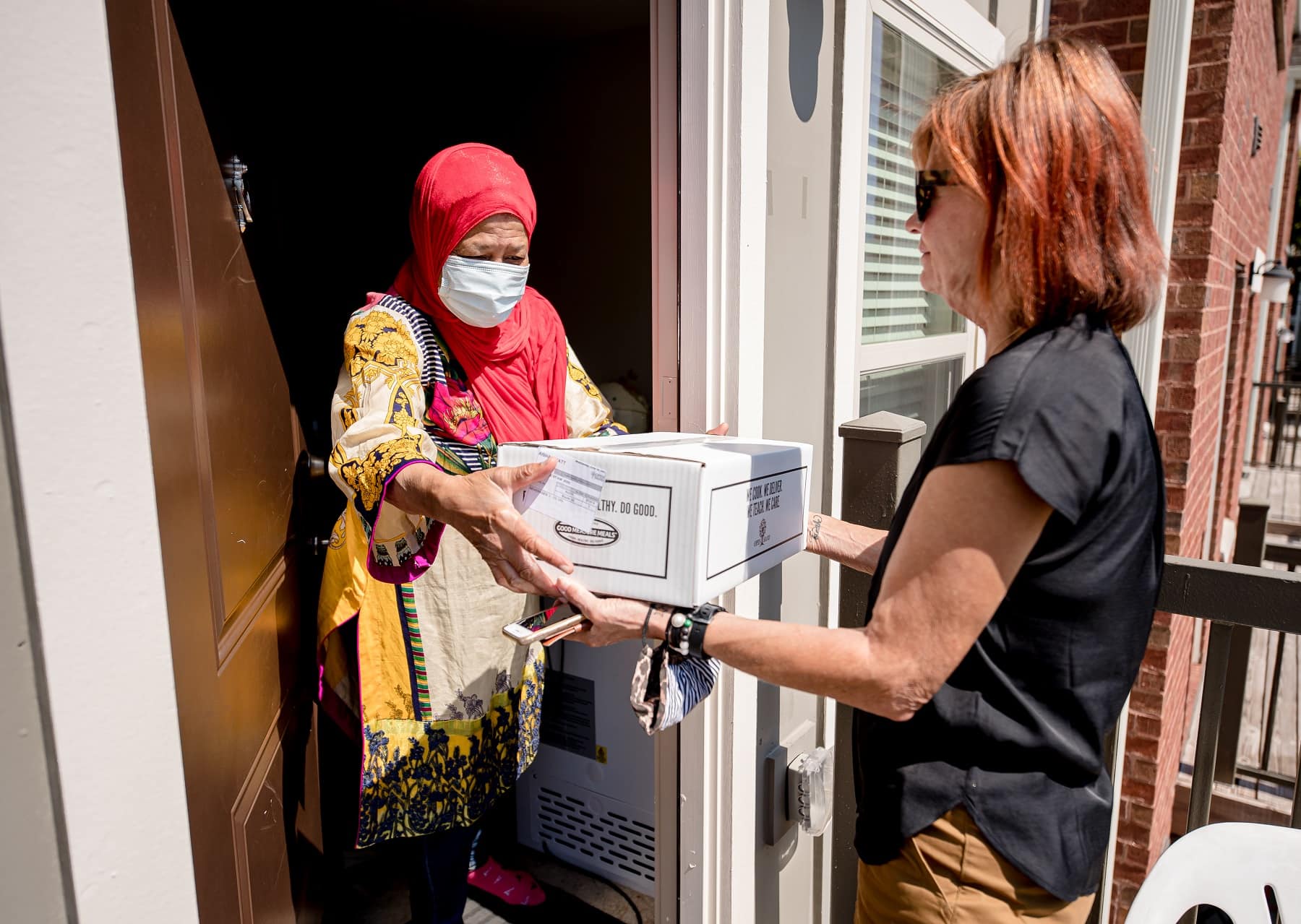The need for support doesn’t end when a patient leaves the hospital: in fact, being discharged is just the beginning of the healing process. But when a patient faces food insecurity, they're faced with a number of challenges that make it harder for them to prepare meals or access the nutrition they need to recover. Unfortunately, these challenges often result in the patient ending up back in the hospital.

Open Hand is working hard to change that dynamic and continue to demonstrate the power of food as medicine.
For the past year, Open Hand has partnered with Grady Hospital to provide home-delivered, medically-tailored meals within 48-72 hours of discharge for patients who have diabetes or chronic heart failure and screen positive for food insecurity. Prior to discharge, more than half of program participants reported anxiety related to buying food and preparing healthy meals, noting challenges such as the cost of food, issues with getting to the store to buy groceries, mobility issues that hinder meal preparation, confusing dietary restrictions, lack of cooking knowledge, and lack of cooking equipment.
By providing patients meals to ease their transition, we’re setting an already vulnerable group up with the tools they need to better manage their health. In doing so, it’s our hope to improve their overall health outcomes, lower chances of re-hospitalization, and prevent any further health complications. We’re proud to report that the program is already seeing great impact, emphasizing the truth that food is medicine.

The program served nearly 500 patients, and of those, 80% reported that the meals made their transition from the hospital much easier or extremely easier. In addition, 90% or more of participants said that the meals helped them adhere to discharge instructions, take their medications as directed, and follow their doctor’s recommendations for nutrition and healthy eating.
Meals also helped many newly diagnosed patients who weren’t familiar with the kinds of dietary changes they’d need to make in order to better manage their disease by providing examples of the types of foods and the portions they’d need to begin incorporating into their diet. As one participant remarked: “I was just diagnosed with diabetes and I have to change my eating habits, so the meals helped me see what to eat.”
Since the start of the program, we’ve expanded to provide at-home meals for those who screen for food insecurity and who are living with any chronic illness, as well as food insecure patients who are recovering from COVID-19. With meal satisfaction high overall, we’re excited to continue evolving the program to provide discharged patients the support the need as they transition back home.
Thank you to Miranda A. Cook, MPH, PhD Candidate, Nutrition and Health Sciences at Emory, for your work in helping us evaluate the impact of this program.
